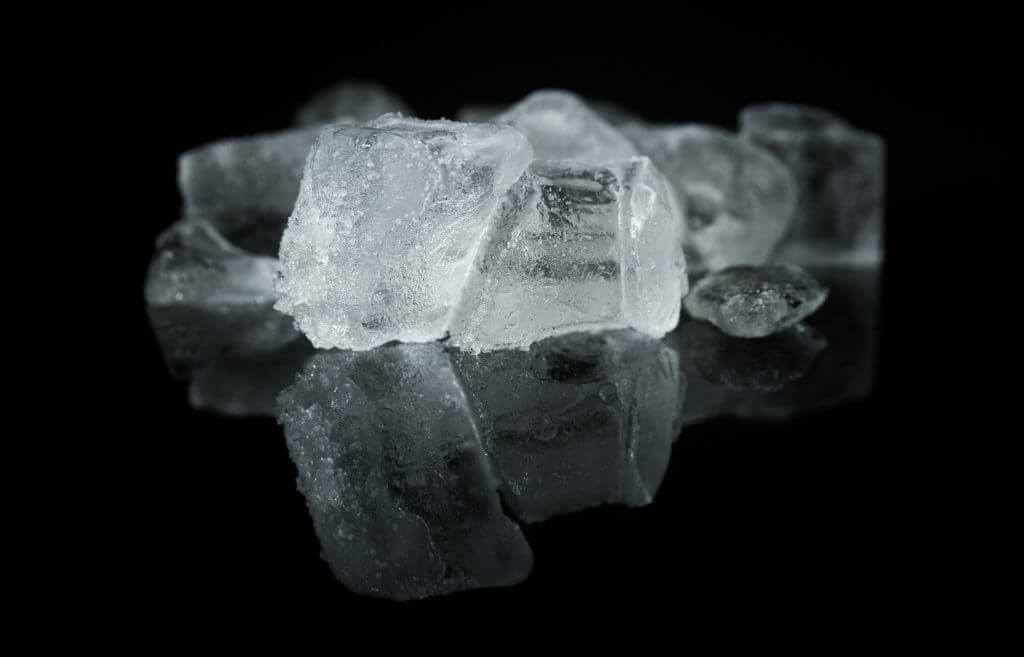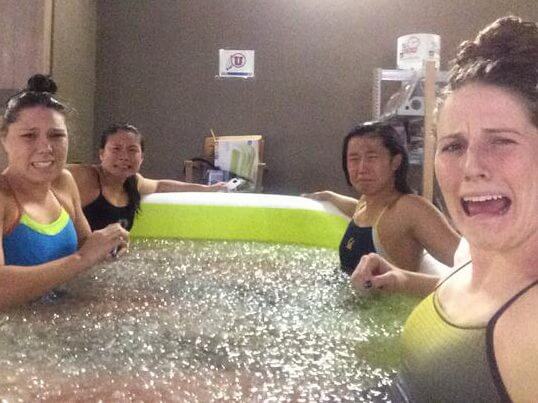Ice Baths: Is the Pain Necessary?

By Mark McCluskey, Swimming World College Intern
Championship season is the most physically demanding part of the season. Full weekends of back-to-back races and working on maintaining a taper can take a huge toll on a swimmer’s body and mind. Often, swimmers look for the best ways to recover as quickly as possible in between races to gain an edge over their competitors. With so many recovery drinks and materials coming out, some swimmers choose to go the old-fashioned route: ice baths. However, some believe that ice baths are actually detrimental to the performance of swimmers.

Photo Courtesy: twitter.com/missyfranklin
While ice baths seem to have been the go-to for athletes in the past, recently experts have begun to question whether this method is as effective as once thought. However, Men’s Journal – who backs the method of ice therapy – claims that taking an ice bath after a workout is important because it helps to flush metabolic waste products from your body by making your blood vessels constrict, relieving your muscles of exhaustion and pain. This allows you to be able to be ready for your next competition quicker.
However, it seems that ice baths are not completely beneficial for athletes. According to recent studies, ice baths may have some negative effects on muscle development. While taking an ice bath is great for pain relief, the quick recovery of the muscles causes them to not be able to grow to their full potential. In order to build muscle and strength, you need to tear muscle down, which is what you do when you work out. After the workout, it is essential that the muscles heal on their own, because that is the best way for them to grow. By ice bathing after workouts, athletes are getting less out of their workouts.
Jo Pavey, former Olympic runner, settled the debate between hot versus ice baths. While some people think that because ice baths hurt muscle development they should take a heated bath, Pavey shoots this idea down. He claims that a hot bath can be useful a few days after the tough workout or race but not immediately after. So while heated baths can help with recovery, they are far from useful when it comes to quick muscle recovery.
According to the BBC, many studies have been done to test whether ice baths even help with muscle inflammation or pain relief. In one study, nine men were instructed to do an intense leg workout for 45 minutes every day for two weeks. On the first week, they were instructed to take an ice bath immediately after the workout. On the second week, they were told to take a slow, ten-minute cycle as a cool down. The final result showed that the ice baths did not help with muscle inflammation. Thus, it is still unclear whether ice baths even help with muscle recovery. However, other studies have concluded otherwise, so in the case of pain relief and recovery, the truth is still inconclusive.
Because of this, swimmers need to decide what their goal is when it comes to taking an ice bath. Based on research, it is not a good idea to go about taking an ice bath when you are training due to the slowing of muscle repair. The point of training is to build, repair and maintain muscle and fitness levels.
In the case of competition, taking an ice bath could be a good idea in order to feel better for upcoming races. As the goal is to win rather than build strength during a competition, ice bathing would not be a bad idea. If you are feeling worn down on day two of a four day championship, hopping into a cold tub could be the solution to finishing out the week.
Which recovery method do you prefer?
-All commentaries are the opinion of the author and do not necessarily reflect the views of Swimming World Magazine nor its staff.




Joshua Ranque
Andrae Pogiongko ?? interesting
Carley Castura
Taylor Hoover omg stop PTSD
Dain Vallie Jackson Penner Nick Boyd
Josh Line yes…ha thank you for sharing
It’s very unnecessary
Kelly Stubbins might be worth a read